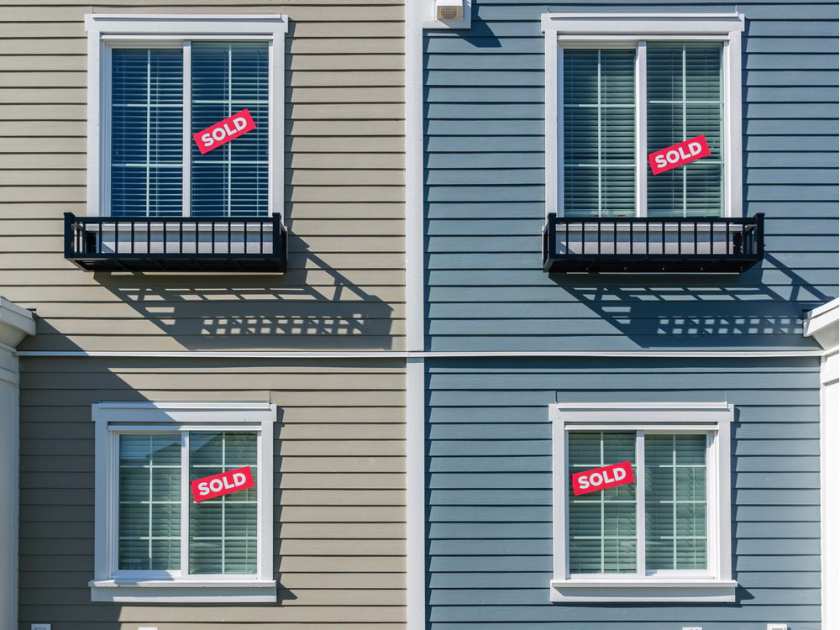
BY MARILYN WILSON, THE OTTAWA CITIZEN November 26, 2015

The value a seller attaches to a property is often overly enthusiastic and sometimes much higher than the value a buyer will give it.
Perceived value
Sometimes value, like beauty, is in the eye of the beholder. Buyers may be exposed to all sorts of information (and disinformation) when researching a building, including the word on the street and friends’ opinions.
They’ll consider the location in terms of noise, walkability and surrounding building values. They may discover the possibility of special assessments on the horizon and adjust their offers downward to compensate.
One thing to consider in Ottawa’s condo market is that neighbourhoods tend to take longer to gentrify because of our lower population density. Buyers here are also quite conservative — likely in part because of the relative newness of our condo market — so they expect views and good location.
Assessed value
Another way of determining value is through the city’s assessment as listed on the Municipal Property Assessment Corporation (MPAC) assessment. This is viable for condos that are complete and already have set taxes and condo fees. Condos that are being sold pre-occupancy may not have been assessed yet. In these cases, buyers may have to rely on the developer’s estimate — the cost of the unit — to determine value.
Seller’s value
For resale properties in general, sellers are usually overly enthusiastic when estimating their property value. Their emotional investment often inflates the expected price, which may then become unrealistic. What they want or need in the way of price may be irrelevant to the actual value of the property.
There is a fitting microeconomic term to explain what often happens with sellers’ pricing: the endowment effect. People attribute value to things simply because they own them. Often sellers think their units are worth more because of x, y and z and, certainly, those may add value if they are new, top-of-the-line appliances or widely desired upgrades. But if competing condos have similar upgrades, the differential value is lost.
So if you’re buying a condo as an investment that you ultimately plan to sell, you may want to forgo many of the costly upgrades. Just because you have access to a buffet, that doesn’t mean you have to try every item on the menu. Select those options that are likely to have enduring value and avoid those that will look dated before long.
Buyer’s value
The key factor here is comparison. Buyers will look at many offerings and often, instead of falling head-over-heels in love, will make a decision based on comparisons of price, location, layout and amenities.
Key questions a seller should ask are: What else is on the market in my price range? How many units are available in the building and how do they compare to mine? What are the prices of competing condos? Are new developments offering price or upgrade incentives?
In summary, how does your unit stack up against the competition? While you’re at it, factor in (objectively!) any changes your unit requires such as redoing a bathroom or kitchen that you find perfectly acceptable but any buyer will view as needing renovation.
Fair market value
Typically, the lower the price the quicker the sale. This is the biggest input a seller has in influencing a sale. If the property is being advertised and shown but no one is making an offer, you can reasonably assume it’s priced too high.
Comparative market value
This is determined by looking at comparable properties that have sold recently, not by the listing prices that sellers often use to justify their price suggestions. Some things to consider are whether the comparable has the same square footage as yours; has a similar layout such as one level or two; has the same upgrades, finishes and flooring type; how the views and noise level compare; what assessments might be due; and how many parking spots are built into the price.
Developer’s value
While the building is going up, the hype will be at its peak. Neighbours, friends and acquaintances will have its rising mass on their minds and both the developer’s and condo’s name will come quickly to their lips.
But sometimes a buyer needs to take a step back and try to bisect the hype from the truth. Ask questions like how many units were sold to the developer and his or her family? This can be a great diagnostic for assessing if the building holds long-term value for the developer. It’s like learning a CEO has purchased his or her own stock. Who better to assess value?
You also may want to know how many penthouses there are and what percentage of units will be rented out versus owner-occupied. More investment condos may mean the development will be less cared for, as tenants are less likely to invest in upkeep. Also, investment condos imply the landlord will ultimately sell, possibly creating a glut on the market, at least within that development.
After establishing a condo’s value, the next question is: Does that value actually matter? If you are a seller, yes. For the buyer, the answer is less clear. For an established, fully occupied development, it certainly will. For a pre-development purchase, the developer may simply sell at the list price.
How can you gain more value? That is for another column.
Marilyn Wilson has been selling real estate for more than 25 years and owns Marilyn Wilson Dream Properties Inc. Brokerage, an Exclusive Affiliate of Christie’s International Real Estate. She can be reached through dreamproperties.com.
